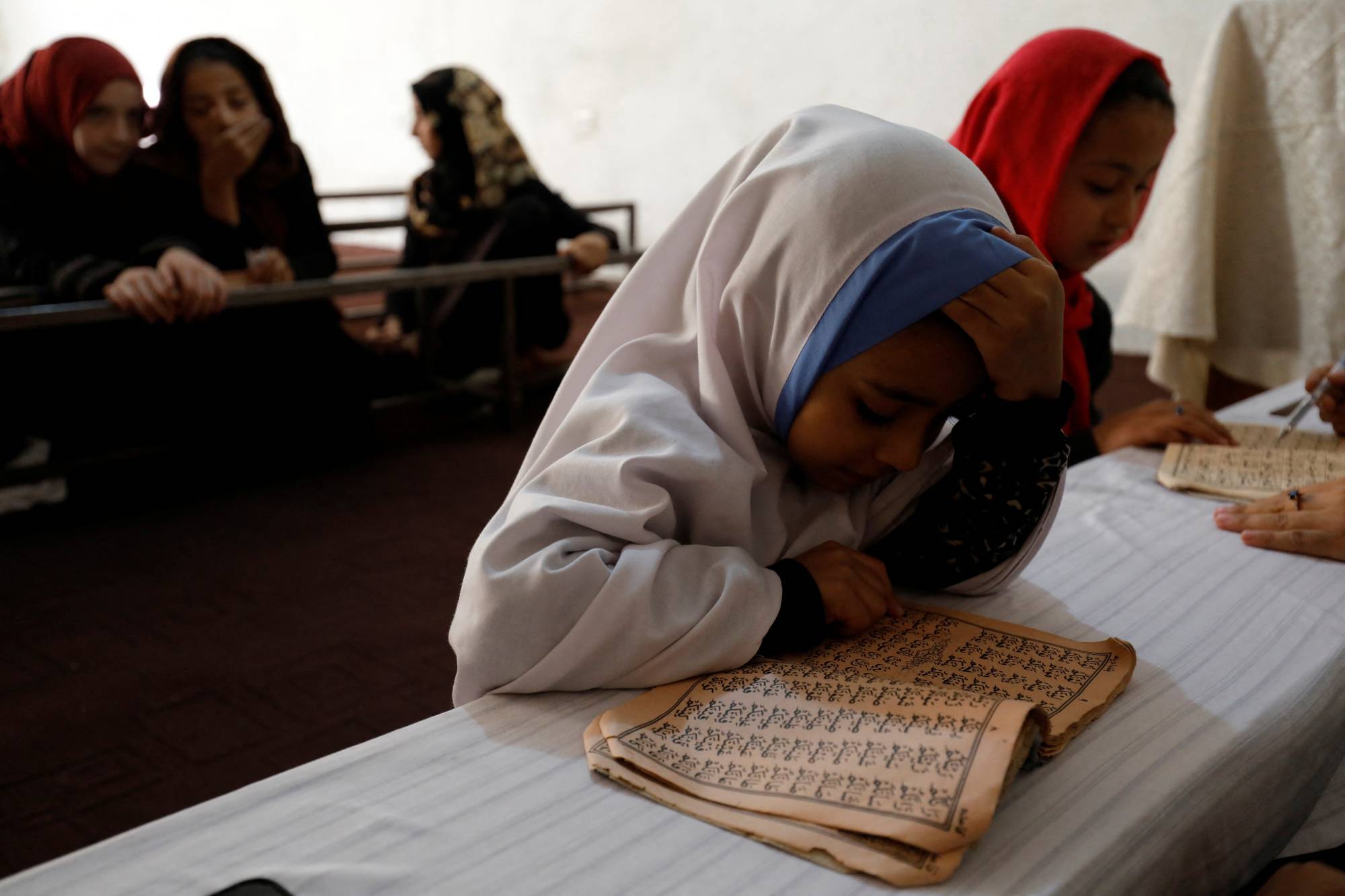In a chilly classroom in the southern Afghan province of Kandahar — the birthplace of the Taliban movement — teenage girls pore over Islamic texts as the disembodied voice of a male scholar emanates from a loud speaker.
Pupils take turns to email questions to the scholar on the class laptop at the Taalum-ul-Islam Girls' Madrassa, or religious school, where male teachers are forbidden from hearing the voices of female students in person.
The number of students at the institution in Kandahar city has about doubled to around 400 in the past year, driven by the Taliban administration's decision to bar girls and women from most secular high schools and universities, according to staff members who gave reporters rare access to the madrassa in December.


















With your current subscription plan you can comment on stories. However, before writing your first comment, please create a display name in the Profile section of your subscriber account page.